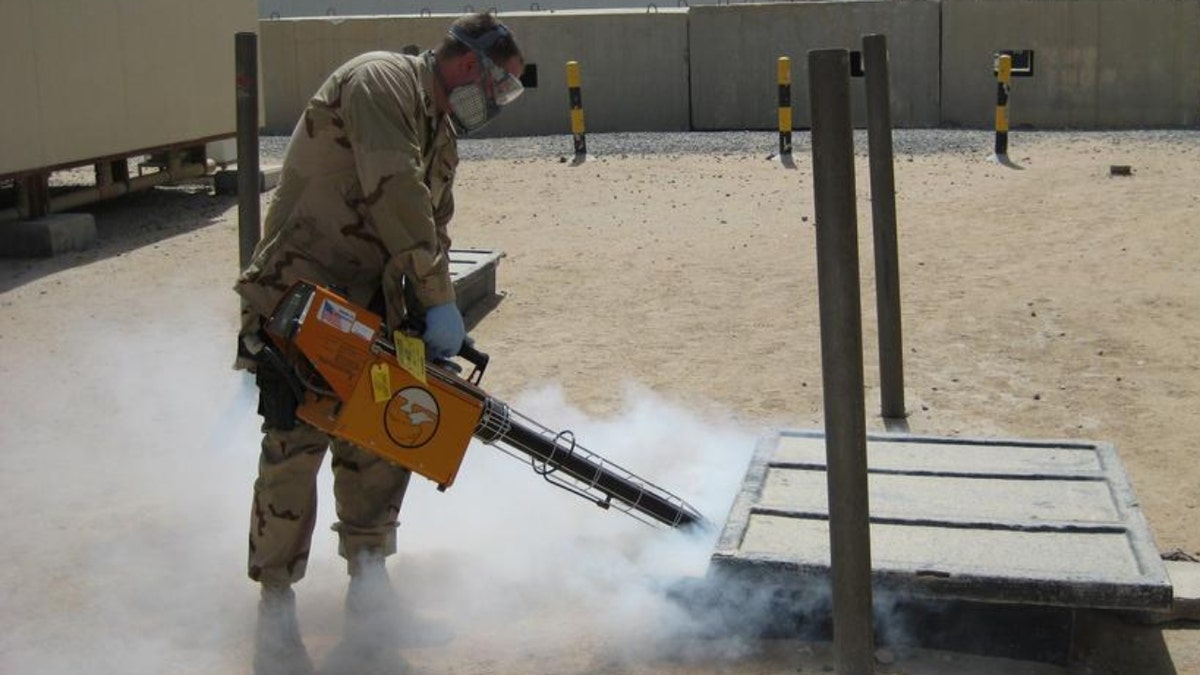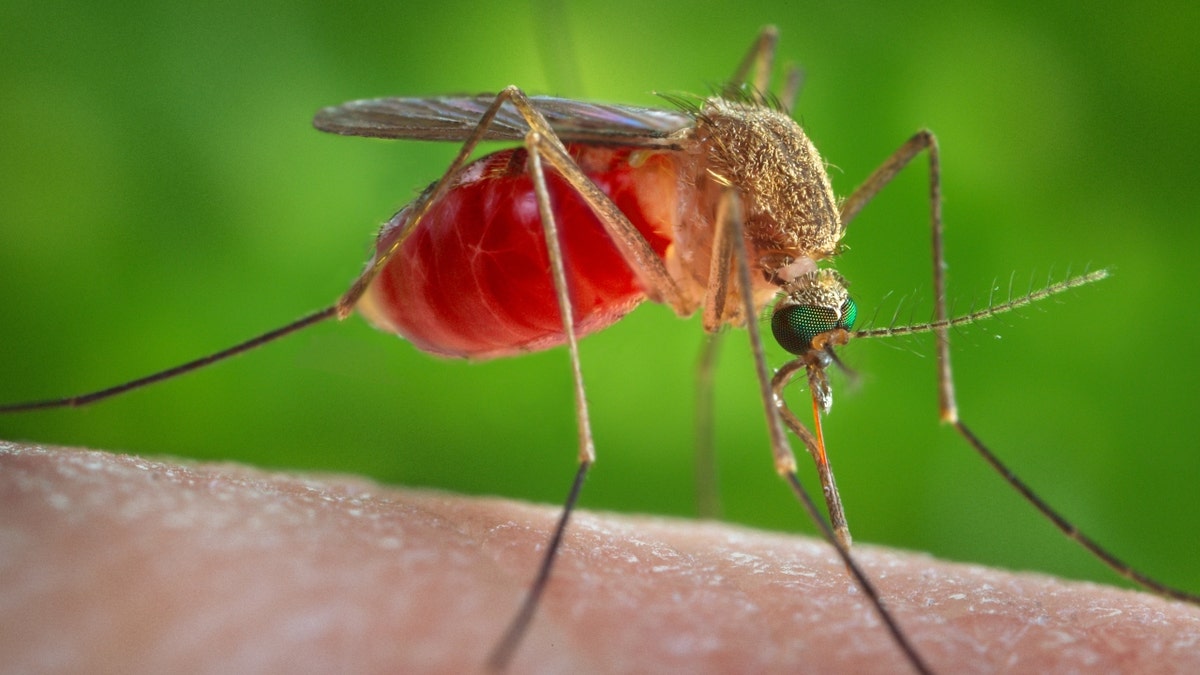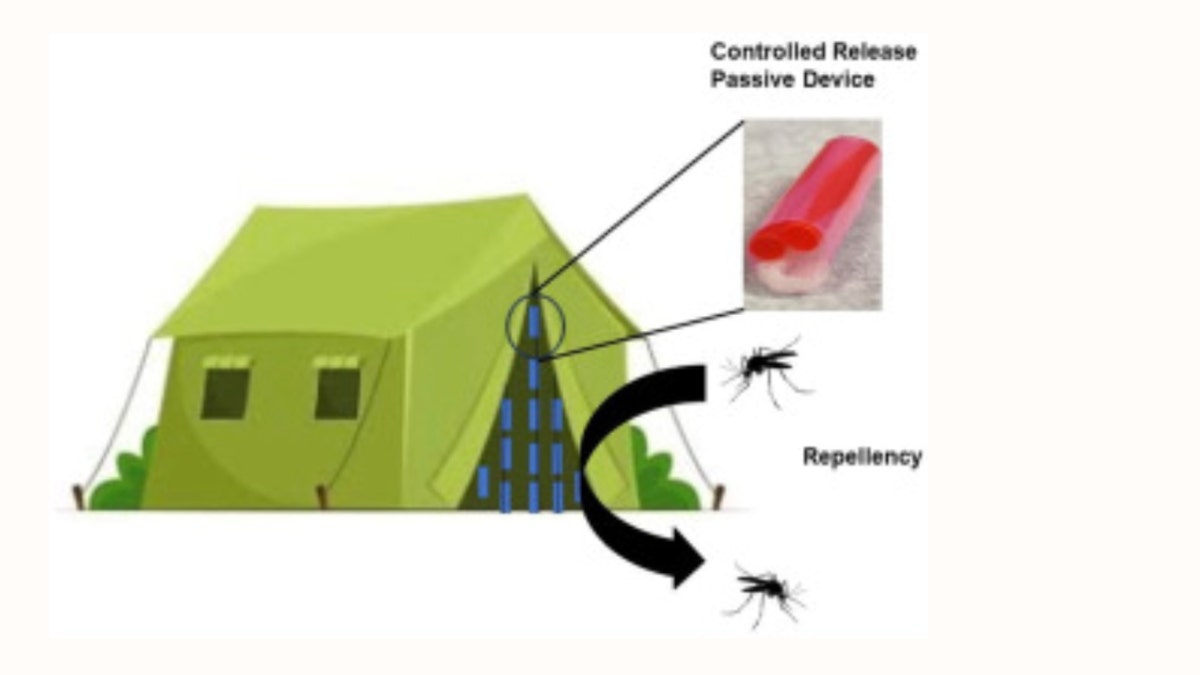Why are insects secretly ending up in your food?
Fox News medical contributor Dr. Marc Siegel weighs in on crickets making their way into sustainable packaged foods on "Tucker Carlson Tonight."
A new device developed at the University of Florida provides protection from mosquitoes for an extended period of time for members of the U.S. military.
The university said the device, which is funded by the Department of Defense Deployed Warfighter Protection program, requires no heat, electricity or skin contact.
It was designed by Nagarajan Rajagopal, a Ph.D. candidate, and Christopher Batich at the school's Department of Materials Science and Engineering.
A press release noted that it was recently successfully tested in a four-week semi-field study at Gainesville's Department of Agriculture, with results showing the controlled release of the repellent transfluthrin was effective in preventing multiple species of mosquitos from entering the testing site.
PETA CLAIMS VICTORY FOR NAVY ENDING 'GRUESOME' TESTING ON SHEEP

A new device developed at the University of Florida provides protection from mosquitoes for an extended period of time for members of the U.S. military. (U.S. Navy / File)
Transfluthrin is an organic insecticide that is considered to be safe for humans and animals.
The repellent device is made up of a tube-shaped polypropylene plastic that is 2.5 centimeters long and holds two smaller tubes and a cotton swab containing the repellent.
Rajagopal said in a statement that researchers attached 70 of the devices to the opening of a large military tent using fishing line and nothing to a similar control tent. Caged mosquitos were released at various points along the exterior of the tent, and nearly all of them were killed or repelled within 24 hours.

As part of testing the new repellent device, caged mosquitos were released at various points along the exterior of a tent, and nearly all of them were killed or repelled within 24 hours. (Reuters / CDC / James Gathany / File)
MONARCH BUTTERFLIES WINTERING IN CA REBOUND FOR 2ND YEAR IN A ROW
Mosquitoes have the ability to spread diseases and viruses, including malaria, dengue virus, Zika and West Nile virus.
Rajagopal said they are filing for a patent on the mosquito repellent device and that the government is interested in further study so that it can eventually be commercialized for the civilian market.

University of Florida researchers developed a bug-repellent device for the U.S. military. (University of Florida)
While the field test showed that the prototype created a protective space from mosquitos for four weeks, the final product – which will be built using a 3D-printing process – could lengthen that period to up to three months. Furthermore, the Department of Agriculture will evaluate other ingredients to expand its potential.
CLICK HERE TO GET THE FOX NEWS APP
"It doesn’t stop with mosquitos," Rajagopal said. "We want to show that it will work with other insects, especially ticks, which pose a threat by causing Lyme disease."


